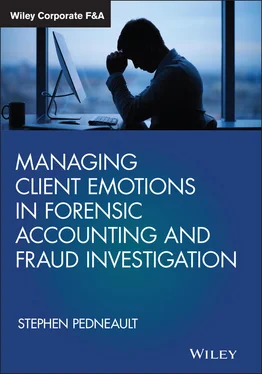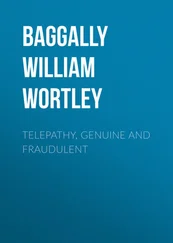I told them that, given the background and history of the individuals working at the location, the lack of cooperation and access to information, and especially the patriarch's unofficial title of “king” of a rather violent neighborhood, that they were crazy for not getting law enforcement involved, if for no other reason than to minimize the safety issues for everyone involved. The fact that they possessed a detailed analysis showing some type of theft occurring but were reluctant to get law enforcement involved did not sit right with me. Something seemed wrong with this potential matter and what they were telling us (or more importantly, what they were not telling us).
I asked them what they thought would happen if they were correct and the family was stealing daily proceeds from the organization. What would happen when that cash flow suddenly stopped? I told them I was not going to get involved unless the group also involved law enforcement. They told me that involving the police was not an option at that time.
Well, at that point, the meeting took a significant turn. After saying they didn't understand why we wouldn't get involved in the matter, they began to get angry. They started asking pointed questions about why we would not take on this matter. As the mood in the room shifted, I knew I had made the right decision. My sixth sense had been telling me something was wrong, and it was. We ended the meeting and left before the discussion went any further.
As of this writing, their attorney – who had used our services on several matters prior to this meeting – has never called us again, nor has he been receptive to subsequent communication from us. Worse, when we referred a client to him and the client ended up using his firm, the attorney didn't even bother to thank us for the referral. Apparently, because of my declining involvement in his matter, he chose to no longer have any business dealings with me or my firm. It happens.
When we returned to the office we conducted some research into the entity and individuals, and also subsequently monitored the matter through news stories. It turned out that our sixth sense was accurate, picking up on the red flags during the meeting – things like the group's holding back on details and their reluctance to involve law enforcement. We learned more about the targets of our investigation, who were known to law enforcement and ran some of the unsavory areas of the city. We also learned that a fabled attempt to install clandestine surveillance equipment failed when some of the targeted individuals randomly happened upon the men installing the cameras, which eliminated any element of surprise. All in all, we decided we had made the right decision in walking away from that matter.
Once we decide a potential matter is one we want to get involved in, we discuss our expectations with the client at the first meeting. I encourage every fraud examiner to establish ground rules with new clients at the inception of a new matter (a process I explore in more detail later in the book). In the initial meeting, we discuss how our firm typically communicates with clients and their attorneys, and we provide our contact information, including email addresses. We tell them that my firm's hours of operations are weekdays from 8 a.m. to 5 p.m. and that we monitor both email and voicemail throughout the day and evening. We also tell them that they can expect a response from someone in our firm within a day of leaving a message, although it is almost always much, much sooner. However, we do not constantly check emails and voice messages, as that can be distracting when working on other client matters. Therefore, we periodically review messages throughout the day and then provide responses. We also let clients know that, unlike many of the world's smartphone users, we do not receive emails on our phones, so there will be a delay between the time they send an email and the time they receive a response.
Fraud examiners should ensure that all the communications on a matter comply with counsel's expectations to best ensure the attorney–client privilege throughout the duration of the matter. In most cases, the attorney will request to be included on all communications, and you should expect to include the attorney on all communications even when the client fails to do so.
If a client communicates with us without including their attorney on the exchange, our practice is to add the attorney back onto our responses and add a reminder to the client to be sure to include the attorney on all future communications. Although many clients will comply with your reminder, many will not – for a variety of reasons, including trying to minimize the attorney's billable time on the matter. Regardless, we add the attorney and the reminder every time.
In some cases, a client will become angry after you add the attorney back on to the communication and will call or send you a heated email. Once they vent, remind them that the attorney–client privilege is there to protect them and prevent any unwanted disclosure of information about their matter. My experience has been that the client will understand this explanation, and the issue will go away – at least until the next time their attorney is added back onto a communication. Remember: Your persistence is more important than their reasoning for not wanting to include their attorney on communications.
In our first meeting, we also discuss the different emotions the client will likely encounter while their matter is pending resolution. We tell them they will probably become frustrated – if they are not already – due to the time it takes to resolve financial matters. We tell them that they may get angry at times, possibly because of delays or costs or because of an unfavorable decision or limitation in their case. We tell them that we will be patient and responsive and will give them the best information available each time they reach out to us. However, they can expect at times that we may not have much information with which to update them.
We try to end each initial meeting by setting the client's expectations at a realistic level. By doing so, we create a way to bring the client back to reality when they have bad days during the pendency of their matter – and they will have bad days.
As cynical as this may sound, after 31 years of experience in this field, I tell clients to set their expectations at “disappointed.” I tell them that, in the end, if they are disappointed by the ultimate outcome of their matter, then their initial expectations have been met. If the outcome or results exceed their expectation of disappointment, then they will have done better than most.
I learned this strategy (which I like to call “Sales 101”) through manager training I received working at a public accounting firm. The training we received was based on sales training used by car dealers with their sales staff. There, I learned that the recipe for satisfied customers was to meet or beat customer expectations every time. The only way to accomplish this regularly was to set customer expectations at a realistic level. Sadly, I have found that most fraud cases result in disappointment at some level, whether it relates to the amount recovered, the consequences and accountability (or lack thereof) for the perpetrator, or the court's decision against the client's position.
The fraud examiner, also, must set his or her sights on a likely disappointing outcome, since it's difficult to predict how cases will play out in a court of law. In such cases, it's difficult not to absorb some of the client's emotions – as is illustrated in the following story.
We were retained to work with counsel to investigate a fiduciary's actions within an estate and a conservatorship. A fiduciary is someone who is put into a position of trust over someone else's assets and affairs. The beneficiaries of an estate had retained counsel and claimed that the fiduciary, who was also an attorney managing the estate's financial affairs, was stealing from the estate and conservatorship. The estate in question belonged to a husband and wife who never had any children. The beneficiaries to the estate, all relatives, lived out of state. The court named the attorney as the woman's conservator, which created the fiduciary position.
Читать дальше












